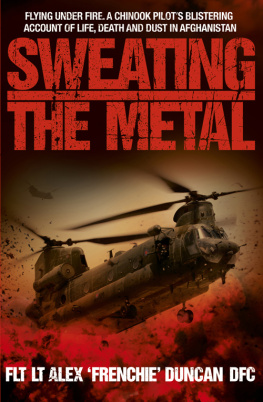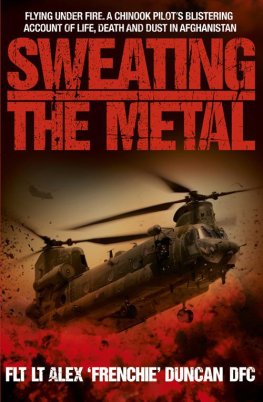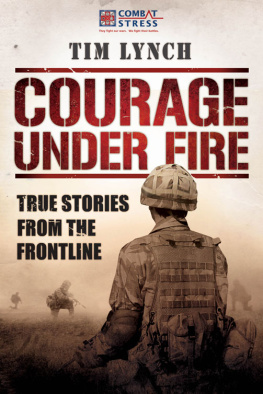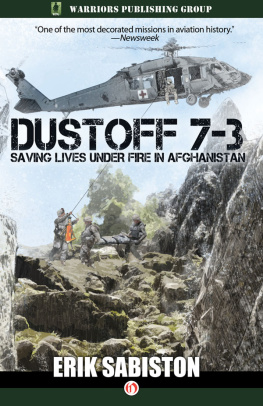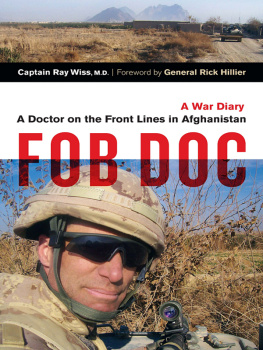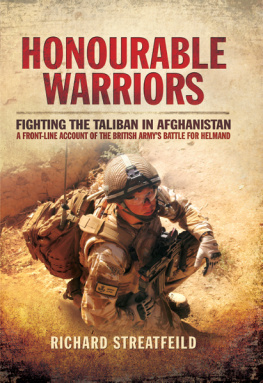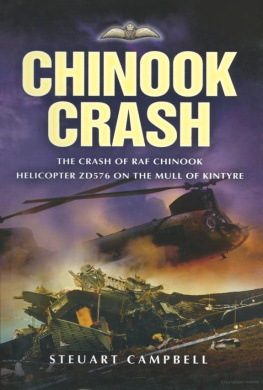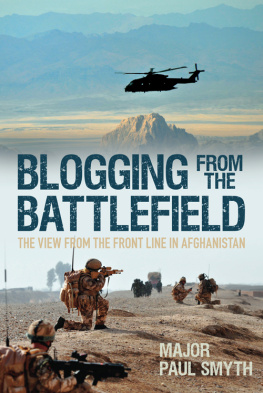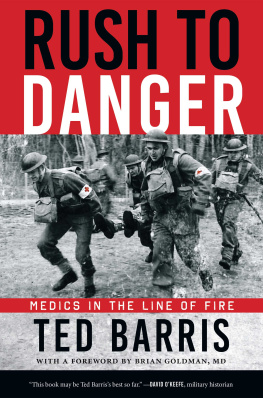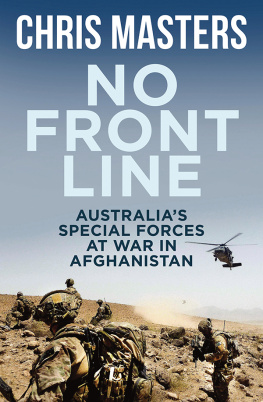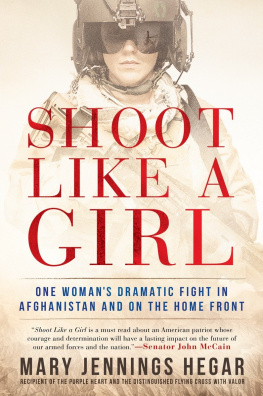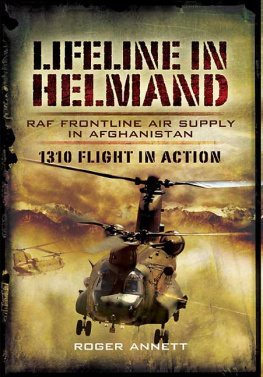Acknowledgements
First and foremost, Id like to express my deepest and most heartfelt thanks to my lovely wife Alison, my boys Guy and Max, and to my parents, for their unflinching love and support through some extremely testing times in my career as a military pilot.
Thanks are due to James at Watson, Little and to my publisher, Rupert Lancaster, for seeing the potential in this book from the very beginning. They both shared my belief that the work of the Chinook Force should be brought to a wider audience. Also to Kate Miles and all at Hodder and Stoughton who worked for so long to bring the book to life. I cant thank you enough for your support, enthusiasm and sheer hard work. Thanks to Tara Gladden for polishing the manuscript you really did a sterling job.
Im indebted to the Ministry of Defence and its staff, in particular Squadron Leader Stuart Balfour, for allowing this story to be told and for supporting and facilitating Antony Loveless and those who worked to make it happen. Thanks Stuart, for shepherding the manuscript through to publication and for your advocacy in ensuring that what I wrote saw it through to the end.
Although the events that I describe in this book are as they appeared to me, they also represent the words and memories of countless others. To all of you, both named and anonymous, who gave up your time and your memories, thank you.
Huge thanks are due to all of my friends and colleagues in the Chinook Force at RAF Odiham, in particular the crewmen who work so tirelessly and give so much to make each sortie a success. I salute your commitment. The great unsung heroes of the Chinook Force are the technicians and engineers who keep us flying thank you all. And a special thank you to JP, a brilliant leader, tactician and friend.
Special thanks to my friends and family who have backed and encouraged me throughout.
The final word must go to all those men and women of the British Armed Forces who fight so hard under such punishing and inhospitable conditions, while living in spartan, basic accommodation. Thank you all. You are a credit to yourselves, to your uniform and to the nation, and I feel proud to work alongside you. And to those who never made it back you will never be forgotten.
Accroches-toi ton rve
I always wanted to fly. I was six when my uncle gave me a book called Les Ailes dor LAronavale US (Golden Wings of the US Navy). Full of high-quality photos of F-14s, it awakened within me an interest in flying which then demanded attention like a recalcitrant child. Once Id opened my mind to the concept of flight, I dreamed of being a fast jet pilot and began an enduring love affair with aviation that remains with me still.
My father is British. Hes an accountant, and my mum (whos French) is an English teacher. They met when my dad was reading French at Oxford and, as part of his degree, went to France for a year to work as the assistant to an English teacher that teacher was my mum. I was born in Belgium in 1976, where my father was working at the time, but moved to Paris when I was one.
Paris dominates my memories of growing up, so the city had quite an impact on my sense of identity. We lived in a spacious apartment near the Seine in a suburb to the south-west of the city. We spoke English and French at home, so I passed the exam for a bilingual secondary school and eventually graduated with my Baccalaureate. England, though, was also a huge influence on me; my paternal grandparents lived in Sevenoaks and I adored it there. I travelled there regularly from a young age and when I was older Id spend summers there to improve my English so I had a pretty good grounding in British culture.
We travelled a fair bit when I was younger and I looked forward to the flights almost more than I did the actual destinations. I was always asking my dad to draw aircraft or make paper airplanes for me; I wasnt so much concerned with how a plane was kept in the sky, it was the graciousness of it there was a certain magic about the fact that it flew.
I dont think the French Air Force ever figured in my thoughts, even from when I first dreamed of flying; it was always the RAF. When I learned about World War II, I always imagined I was in the cockpit of a Spitfire. So when it came to choosing a university, it had to be one in England. I read Aerospace Engineering at Manchester and after graduating in July 1999 (alongside my degree, I also acquired the nickname Frenchie) I was accepted into the Royal Air Force as a direct-entry pilot.
The RAFs motto is Per Ardua Ad Astra , which, roughly translated, means Through Adversity to the Stars. A very loose translation might be, Its a rocky road that leads to the stars, and having travelled that arduous, winding and infinitely long road to gaining my wings, its a maxim that really means something to me.

I was well aware of what the process involved when I did my initial assessment with the RAF, but somehow, by the time I presented myself at RAF Cranwell (the RAFs equivalent of Sandhurst) on August 6th 2000 to begin my six months of officer training, its like Id forgotten. I knew on an abstract level that you dont just join the RAF and start flying on day two, but there was still a part of me that expected to be given the keys and told to go ahead and fly!
The process of turning civilians into functioning, capable military officers is an exact science, tried, tested and honed over generations, but basically it boils down to breaking and then remaking you. The process irons out all the flaws, the bad habits, the laziness, lack of fitness and absence of discipline that are hallmarks of civilian life, and replaces them with military bearing, an ability to march, work as part of a team and lead by example. It was February 2001 when I passed out as Flying Office Alex Duncan but, because there were no slots immediately available at the Elementary Flying Training School (EFTS), I didnt start my basic flying training until May.
The four-month course is broadly similar to the course that civilian pilots do to obtain a Private Pilots Licence, except its much more comprehensive and the pace of learning is accelerated. You can be flying in formation, hanging off the wing of another aircraft, with around fifteen hours flying under your belt, a time when many PPLs have only just soloed. The training is exceptionally good and despite not being a naturally gifted pilot, I aced all of my final exams and left EFTS with sixty-five hours, experience in my logbook.
Despite now being able to fly a light aircraft in cloud, at night, alone, and perform aerobatics and low-level flying, youre still of no use to the RAF. EFTS is all about identifying your strengths so you can be streamed to one of three arenas that the brass thinks youre most suited to, depending on where they have the greatest need at that particular time fast jets, multi-engine or rotary. Fast jets was my first choice, followed by multis and finally, rotary, which is what I got. Id sailed through all my exams and handling tests, and I was informed Id achieved the grade, but there was a problem affecting the Tucano T1, the aircraft on which the RAF teaches basic fast jet flying. It created a huge backlog of pilots, so they looked at my performance and decided I had the aptitude to be a good helicopter pilot.
I was so gutted at first that I even considered leaving the RAF, but ultimately I accepted the decision because I realised it was about what the Air Force needed, not what I wanted. Whatever I flew, be it fast jets or helicopters, Id love the job because I would still be flying. Maybe a different kind of flying to what Id dreamed of, but still flying nonetheless.
Because I thought Id be streamed fast jet, Id already arranged a holding post with the fast jet test squadron at Boscombe Down. I couldnt change it, so there was nothing else to do but change my perspective. If I couldnt be a fast jet pilot in the RAF, at least Id be able to live the life for a few months and get it out of my system.
Next page
